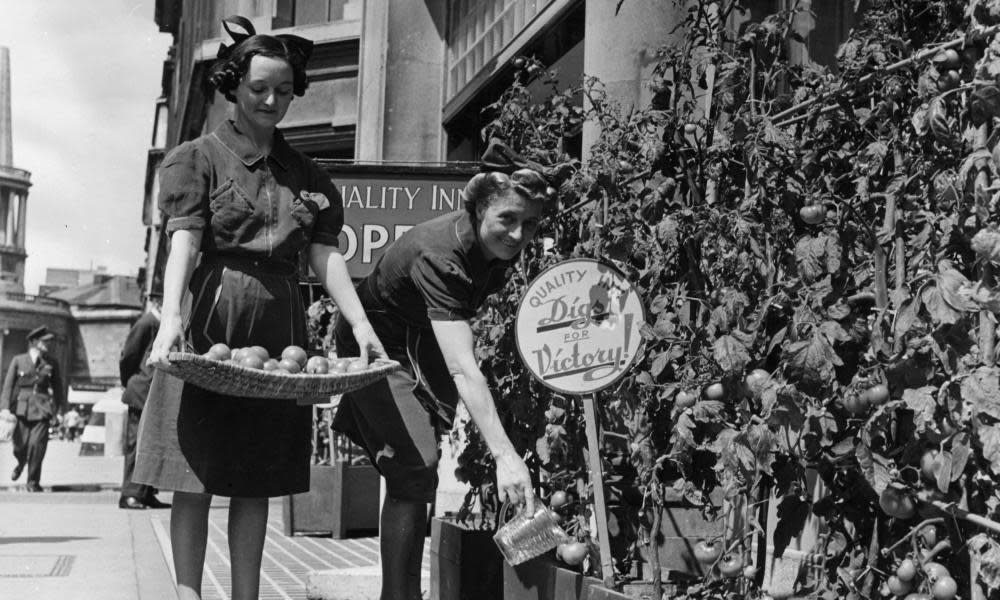Turnips for a month? Why Brexiters’ food nostalgia is folly

Not to exaggerate, but barely a day seems to go by now without some BBC reporter heading to a provincial town where, iceberg lettuce in hand, he or she talks to local shoppers about what might happen in the event of a no-deal Brexit. How, the reporter wants to know, are people going to feel when they cannot easily get their hands on, say, some nice, fat, Dutch tomatoes? Will they miss them? Will their hearts ache for all that lost colour, for all those vitamins gone astray in wintertime?
Each time, I wait and wait for someone to shout: please don’t make me eat turnips every day for a month! Oddly, though, this never happens. From the grey expanses of the pedestrian precinct, the answer comes back: no, we won’t miss these things. “It’ll do people good to go without,” someone will say, with a shrug. “We used to manage perfectly well, after all.”
It’s never clear whether the halcyon age of making-do that these individuals have in mind is one they can actually remember, or if they’ve simply taken the slogan on their Keep Calm and Carry On tea towel too much to heart – and needless to say, the reporter, hell bent on impartiality, isn’t about to push the point. As the programme returns to the studio, I always picture the vox-popped shopper walking into a well-stocked supermarket, where they promptly buy, without even thinking about it, a German cauliflower, four Belgian pears and a kilo of French potatoes.
You get a better sense of the misery of rationing from what people missed
Such misplaced nostalgia. It’s enraging. You don’t have to be old – I’m in my 40s – to remember when choice in the matter of food was vastly more restricted than now. Of course we survived. That’s hardly the point. Life got so much better when all sorts of imported cheese, yogurt, fruit and vegetables began to be available (for me, this wasn’t until the early 1980s). People say: if there are shortages, everyone will just have to eat seasonally, and maybe grow their own – an idea I broadly favour until I remember my father’s allotment in its heyday. In winter, life was very … kale-based. In summer, my stepmother was a one-woman Birds Eye factory, frantically blanching broad beans for the freezer.
But since I have the impression some of these people are really thinking about the war, and rationing, let’s trek back a little further. It’s easy to go on about snoek, a tinned fish so universally disliked that unused cans were eventually relabelled as cat food; ditto Woolton pie, a concoction of boiled vegetables named after the minister of food. But these things can sound almost comical: mere props in a costume drama. I’ve always believed you get a better sense of the misery of rationing from what people missed. Their longing, like their hunger, is intensely chastening; their cravings far more salutary than anything Meat-free Monday can achieve.
In March 1944, the diarist Vere Hodgson noted that a shop near her Notting Hill flat had got some oranges. “We have seen orange peel in the street,” she wrote. “Most refreshing even to look at it.” Two years later, Elizabeth David, the future author of Mediterranean Food, returned to London from India, where she moved in with her sister, Diana: “One day, I took back to her among the broken biscuits and the tins of snoek … one pound of fresh tomatoes. As I took them out of my basket to show her, I saw that tears were tumbling down my sister’s normally serene face.” She asked what was wrong. “Sorry,” said Diana. “It’s just that I’ve been trying to buy fresh tomatoes for five years. And now it’s you who’s found them first.”
Some of my friends think I’m a Brexit catastrophist – and I do see that whatever happens, things are unlikely to be as bad as during the war (though life could, I think, very quickly become quite 1970s). Nevertheless, I wish people would stop invoking what they imagine to be a plucky Blitz spirit. It’s they who have no idea how lucky they are, not the rest of us. This February, I find myself giving grateful thanks for every orange that passes my lips – whether it comes from Spain, Italy, or somewhere else entirely.

 Yahoo News
Yahoo News 
